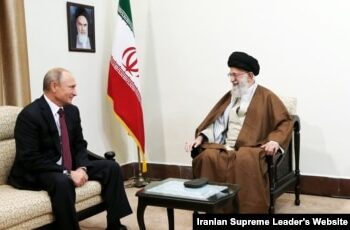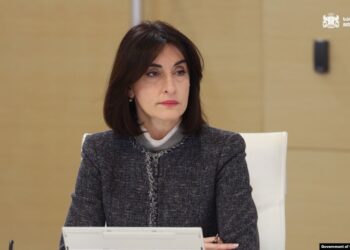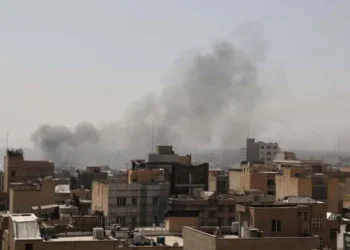Georgian Prime Minister Irakli Kobakhidze has delivered a forceful message ahead of the opposition-organized rally planned for October 4, calling for restraint in public discourse and warning that even rhetoric deemed unlawful will be subject to legal consequences. Simultaneously, Kobakhidze escalated criticism of Western diplomatic engagement in Georgia, accusing certain embassies and ambassadors of encouraging radicalism and undermining the country’s sovereignty.
“We call on everyone to control their rhetoric as much as possible, so as not to end up where some others have already ended up,” Kobakhidze said during a press briefing this week, making it clear that political speech perceived as inciting unrest will be scrutinized by law enforcement.
He emphasized that the government will respond to violations “including at the rhetorical level,” and that Georgia’s institutions are now more empowered than ever to ensure full legal enforcement. “Our state has become accustomed to language. We will not allow anyone to abuse this. Whether it’s corruption, organized crime, drug-related offenses, or politically motivated crimes — we now have much more opportunity to enforce the law in its full severity.”
Kobakhidze framed the government’s enforcement capacity as a direct outcome of what he described as an unprecedented level of independence and sovereignty.
“Today our state is independent and sovereign as never before, and this reality gives us the opportunity to enforce the law as strictly as possible in relation to any type of crime,” he declared.
He went on to highlight the government’s intensified efforts to combat various forms of crime, stating that several cases have already been initiated by law enforcement agencies.
“This is entirely a matter of the law; it does not concern the government as such, but rather the relevant institutions,” he noted, referencing the active roles of the Prosecutor’s Office, State Security Service, and other agencies.
“Our government is taking active measures to eradicate corruption in Georgia. The fight against crime has intensified in all major directions — this concerns corruption-related crimes, drug crimes, organized crime, and politically motivated crimes,” he said.
In a striking shift from diplomatic protocol, Kobakhidze accused unnamed Western ambassadors and embassies — specifically referencing a meeting between opposition leaders Giga Bokeria and Gia Baramidze and the British Embassy — of interfering in Georgian politics and emboldening extremist elements.
“It is very bad when specific ambassadors and embassies encourage radicalism in Georgia,” Kobakhidze said. “Unfortunately, several European embassies are directly involved in inciting radicalism in Georgia. They frequently meet with radicals, and this is a sad event.”
He argued that such actions damage the reputation of the European Union and its member states in the eyes of the Georgian public.
“Society is observing this. Society appreciates this. And I will repeat once again that all this reflects very badly on the image of European countries and European bureaucracy in Georgia.”
Kobakhidze also questioned the rationale behind diplomatic meetings with opposition parties that, according to him, are not even contesting elections.
“When you meet with parties in connection with the elections that do not participate in the elections at all, this is even more incomprehensible.”
Kobakhidze suggested that many of the challenges facing Georgia today are not homegrown but rather “artificially created” by external actors.
“For example, when you have difficult political processes in the country and around the country, when there is an ongoing war in the region, when in this context there is pressure on the government to get involved in hostilities — under such circumstances, some things may not receive the proper attention for objective reasons,” he said.
Yet, he emphasized that Georgia’s strengthened sovereignty now enables the government to act more decisively.
“Today, however, our state is independent and sovereign as never before,” he reiterated, linking this newfound sovereignty to the ability to “enforce the law as strictly as possible in relation to any type of crime.”
Kobakhidze’s remarks come as Georgia’s political climate grows increasingly polarized ahead of the 2024 parliamentary elections. The government has been widely criticized both at home and abroad for its passage of the so-called “foreign agents law,” which many fear will be used to silence civil society and independent media.
While the ruling Georgian Dream party insists that its actions are necessary to defend national sovereignty and stability, Western governments and organizations such as the EU, U.S. State Department, and Transparency International have raised alarms about democratic backsliding and politicization of the justice system.
The Prime Minister’s attack on Western diplomats marks a sharp escalation in rhetoric, potentially straining Georgia’s ties with its traditional Western allies — particularly as the country awaits further steps in its EU integration process.
Meanwhile, opposition groups preparing for the October 4 rally have vowed to continue their protests, accusing the government of authoritarianism and aligning Georgia’s future with Russia rather than Europe.
By Team GT














